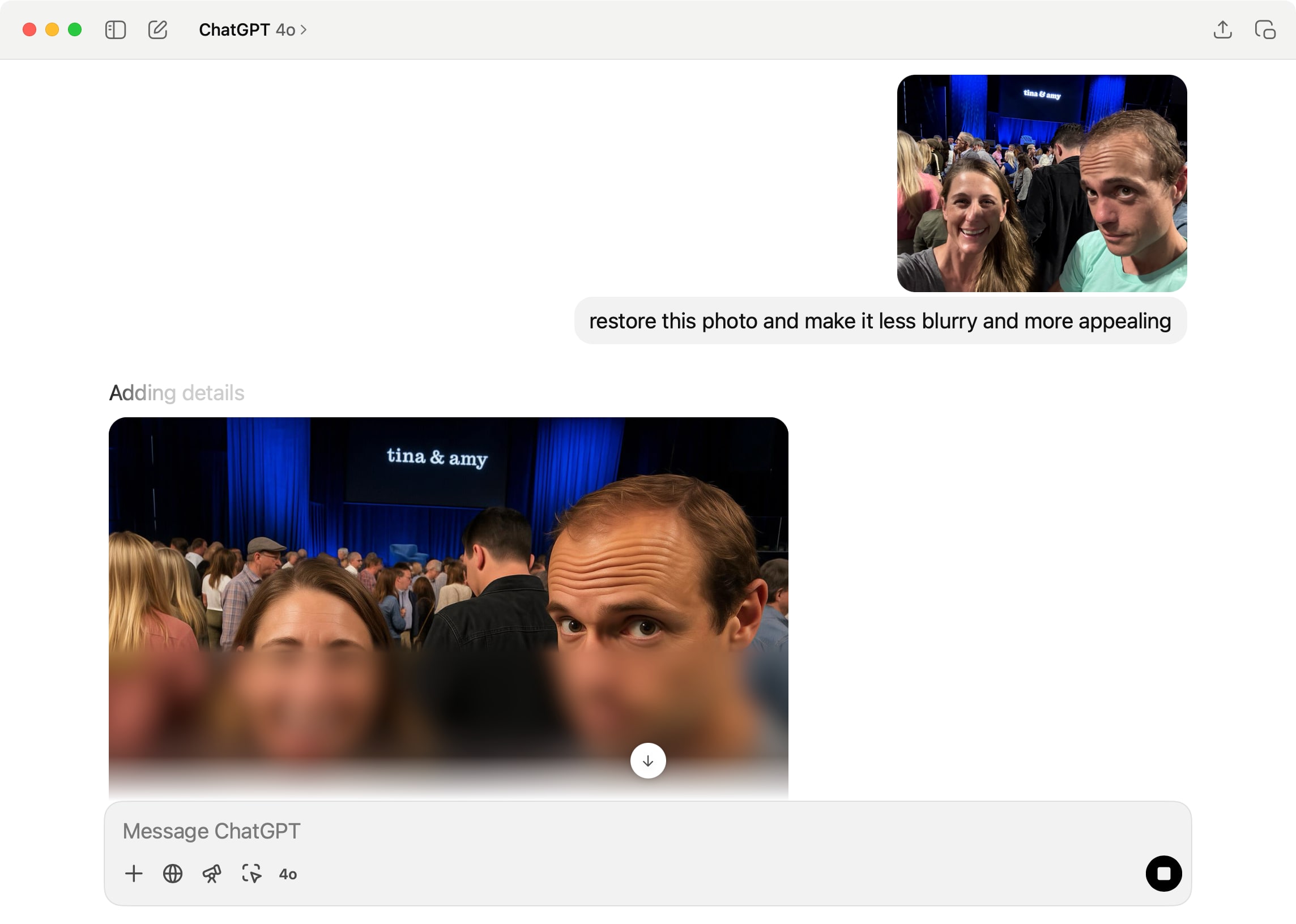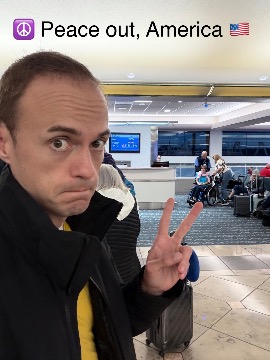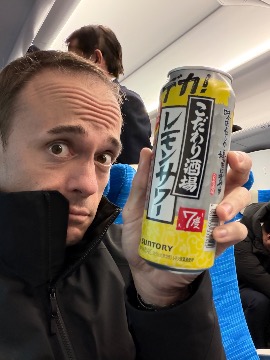You're looking at my e-mail newsletter, Searls of Wisdom, recreated for you here in website form. For the full experience, subscribe and get it delivered to your inbox each month!
Searls of Wisdom for March 2025
Hey everyone, remember March? It was 10 days ago now. And so far April is making me long for the good ol' days of two weeks ago, despite March itself having been one of the more turbulent months in recent memory.
I'm going to take a breath and try to recount some March stuff:
- I made my and Aaron's TLDR gem an actually viable (dare I say, nice) testing framework for Ruby, declaring it 1.0 in the process (if you're not a programmer, did you know you can declare any software "1.0" for any reason or no reason at all? As with everything, nothing means anything.)
- I launched a new podcast called Merge Commits and dropped 36 episodes all at once, in response to a survey where respondents agreed I wasn't producing nearly enough content
- I committed myself to launching POSSE Party by the end of the year, then proceeded to spend the whole month doing anything other than work on it
- I figured out how to let my computer drive itself, but it was really bad at it, so I stopped
- I couldn't shut up about how much I was enjoying the game Avowed, and discussed it at length on my real podcast
- We got to see Tina Fey & Amy Poehler live and up close with our old friend Nicole and her husband (and our new friend) Nathan and that was a lot of fun. Nicole and Nathan combine to form a spiffy creative studio, who you should hire to create you things
Oh yeah, I also wasted several cumulative hours of my life staring mindlessly as OpenAI's new 4o image generation slowly poured vaseline all over my face and hair:

Of all these things, what inspired me to write to you today was, oddly enough, the videogame. See, what sets Avowed apart is the remarkable restraint Obsidian Entertainment showed by embracing an intentionally finite design. Avowed exists in an open world, but it is not an "open-world game", certainly not of the sort typified by the game it was destined/doomed to be compared to: Skyrim. (Itself produced by Obsidian's spiritual second cousin, Bethesda Game Studios.) Where Skyrim encourages you to explore its continent however you like, Avowed leads you along a particular path. In Skyrim, leveling up causes your enemies scale up in strength along with you, whereas Avowed's enemies are static—they'll smoke you if you're not ready for them, but you'll obliterate all who stand against you if you take the time to grind some XP first. And while countless gamers have played literal thousands of hours of Skyrim over thirteen years, you would have to carefully sip everything Avowed offers to reach even one hundred hours. When you reach the end of Avowed, that's it. Game over.
In 2011, a horizon-broadening game like Skyrim was what we needed. In 2025, a straightforward and focused game like Avowed is what the moment calls for.
Just one question: Why?
The loss of the finite
It is often said—though perhaps never put to the test—that the thing that makes life so precious is its finiteness. Without struggle, what can growth teach us? Without scarcity, why strive for more? Without mortality, from where will we draw meaning?
This truism is a common plot device. It pairs well with an epic score as a film reaches its dramatic climax. The husband and wife die peacefully in bed (at exactly the same time, naturally), marking the end of a beautiful two-hour-long life together. You get a bit misty-eyed. The credits roll. We say to each other, "wow honey, that was really good," as the men in the audience pretend not to cry (and fool no one). We let ourselves think about our own deaths for a brief moment—usually after parting ways outside the restroom, but before switching gears to discuss whatever we read on our phones while hovering over the urinal or sitting on the toilet.
Then the next day comes and we all go back to wishing for a life free of struggle, scarcity, and mortality.
What if we got our wish? What if life truly was infinite? Well, fun news! We're watching that dream come true in real time.
The future may not have brought us flying cars, but it has given us our first taste of "infiniteness." Didn't notice? You're not alone. That's because infinity decided to greet us in the most mundane places. It started with a search bar. More recently, a chat window. And now it's spreading to seemingly everything. And our experiences so far don't inspire confidence that this infinite New Life is an unqualified upgrade over the familiar-but-finite Life Classic. But, to be fair to the artificially-intelligent among us, they're new around here and it's possible we're just catching them during an awkward adolescent phase.
A few points of contrast come to mind.
Struggle. In the 1830s, Darwin sailed the Galapagos, sketching a vast array of species and teasing apart several of life's mysteries, but his five-year voyage was constrained by the limitations of the navigable world. Today, any off-the-shelf AI assistant can spoon-feed us more information than we could ever fit in our heads, tailor that information to meet our individual needs, and create personalized study materials—purpose-built tools like NotebookLM and Mindgrasp can generate flash cards, quizzes, and even podcast episodes for you. Without struggle, our computers can instantly distill the whole sum of human knowledge for us… so why bother putting in the work to learn anything ourselves?
Scarcity. In antiquity, our ancestors marveled at the night sky and mapped the movements of every star they could see, but the full breadth of the heavens only amounted to a glimpse of the infinite expanse that lay beyond. Today, I can strap on a VR headset, boot up No Man's Sky (a space game that procedurally generates galaxies full of systems to explore), land on any of its 18 quintillion planets, and roam the surface as I build a base and catalog the wildlife. Without scarcity, one could spend 80 uninterrupted years visiting each planet for 10 minutes, and yet only manage to see 0.00000002% of the game's universe… so why bother exploring it at all?
Mortality. Every person who ever lived has had to reckon with the fact that life isn't forever, and the resulting urgency of that awareness has led to many of humanity's greatest achievements. (I discussed my preoccupation with legacy recently, in January's essay.) Today, we haven't quite defeated death, but it's increasingly hard to imagine that there won't be a smorgasboard of life-extending products and services offered to wealthy millennials someday—epigenetic therapies to reverse aging, digital twins that possess our memories and reside in a simulated world, lab-grown organs to relieve our worn out hearts and tired livers. Without mortality, how long could one live before losing the plot of the story of their life… and why bother living a life that's lost its meaning?
I don't have any answers to these questions. No one does. I only offer this note as a meditation. An opportunity to ponder the dawn of limitless scale, and what it means for your weekend.
The era we're entering is exposing us to possibilities that our evolution, culture, and education didn't prepare us for, and it will be up to each of us to chart our own course forward. Constraints can be liberating: they make it easier to choose a direction. And while the prospect of being freed from constraint can feel exhilarating, it more often results in people feeling lost.
As the finite things in life give way to the limitless technologies that surround us, it's worth taking a moment to consider what we might be giving up in the process.


